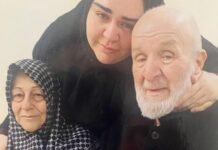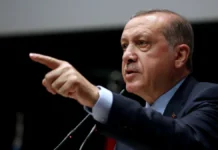A new report by the Netherlands-based human rights group Stichting Justice Square reveals how the Turkish government under President Recep Tayyip Erdoğan institutionalized hate speech against the Gülen movement, detailing its mechanisms, scope and the resulting human rights violations.
The report traces how, President Erdoğan’s government began using hate speech as a propaganda weapon following corruption investigations in December 2013 and later institutionalized it as a tool of repression, using an abortive putsch on July 15, 2016 as justification.
President Erdoğan has been targeting followers of the Gülen movement, inspired by the late Muslim cleric Fethullah Gülen, since corruption investigations in December 2013 implicated him as well as some members of his family and inner circle.
Dismissing the investigations as a Gülenist coup and a conspiracy against his government, Erdoğan began to target the movement’s members. He designated the movement as a terrorist organization in May 2016 and intensified the crackdown on it following the abortive putsch in July of the same year that he accused Gülen of masterminding. The movement strongly denies involvement in the coup attempt or any terrorist activity.
Based on documents and testimony collected from victims and their relatives, the report demonstrates that these abuses were not isolated incidents but the systematic outcome of an official policy.
The report says the cases reveal the full extent of the lawlessness in the post-coup period, when anyone with real or perceived ties to the movement were systematically detained and arrested, stripped of fundamental rights.
Accounts of torture, rape, ill-treatment, harassment and the deliberate denial of medical care to sick inmates as well as numerous suicides indicate that these were not isolated violations but part of a broader policy of hate.
According to the report government-led hate speech and discrimination have taken root in society, prompting ordinary citizens to mirror this hostility. Public servants dismissed under emergency decrees became primary targets of social exclusion, with special notes added to the social security database to prevent re-employment in the private sector.
Following the failed coup in 2016, the Turkish government declared a state of emergency (OHAL) that remained in effect until July 19, 2018. During the state of emergency, the Justice and Development Party (AKP) carried out a purge of state institutions under the pretext of an anti-coup fight by issuing a number of government decrees, known as KHKs.
Over 130,000 public servants, including 4,156 judges and prosecutors, as well as more than 24,000 members of the armed forces were summarily removed from their jobs for alleged membership in or relationships with “terrorist organizations” by emergency decree-laws subject to neither judicial nor parliamentary scrutiny.
The report also criticizes major opposition parties for adopting the government’s hate rhetoric, and the media, which it says turned into a tool of government propaganda.
The report identifies two government institutions as key drivers of the official hate policy: the Presidential Directorate of Communications, for coordinating government propaganda, and the Directorate of Religious Affairs (Diyanet), which has played a direct role in spreading this rhetoric nationwide through religious institutions.
Describing the hate speech campaign as “the most intense, large-scale and systematic” in the country’s history, Stichting Justice Square’s report calls on national and international human rights bodies to take a stand against hate crimes committed by Turkey.
According to latest figures shared by Justice Minister Yılmaz Tunç, more than 700,000 people have been investigated on terrorism or coup-related charges due to their alleged links to the movement. More than 126,000 have been convicted since 2016, with 11,085 still in prison. Legal proceedings are ongoing for over 24,000 others, while nearly 58,000 remain under active investigation almost a decade later.















